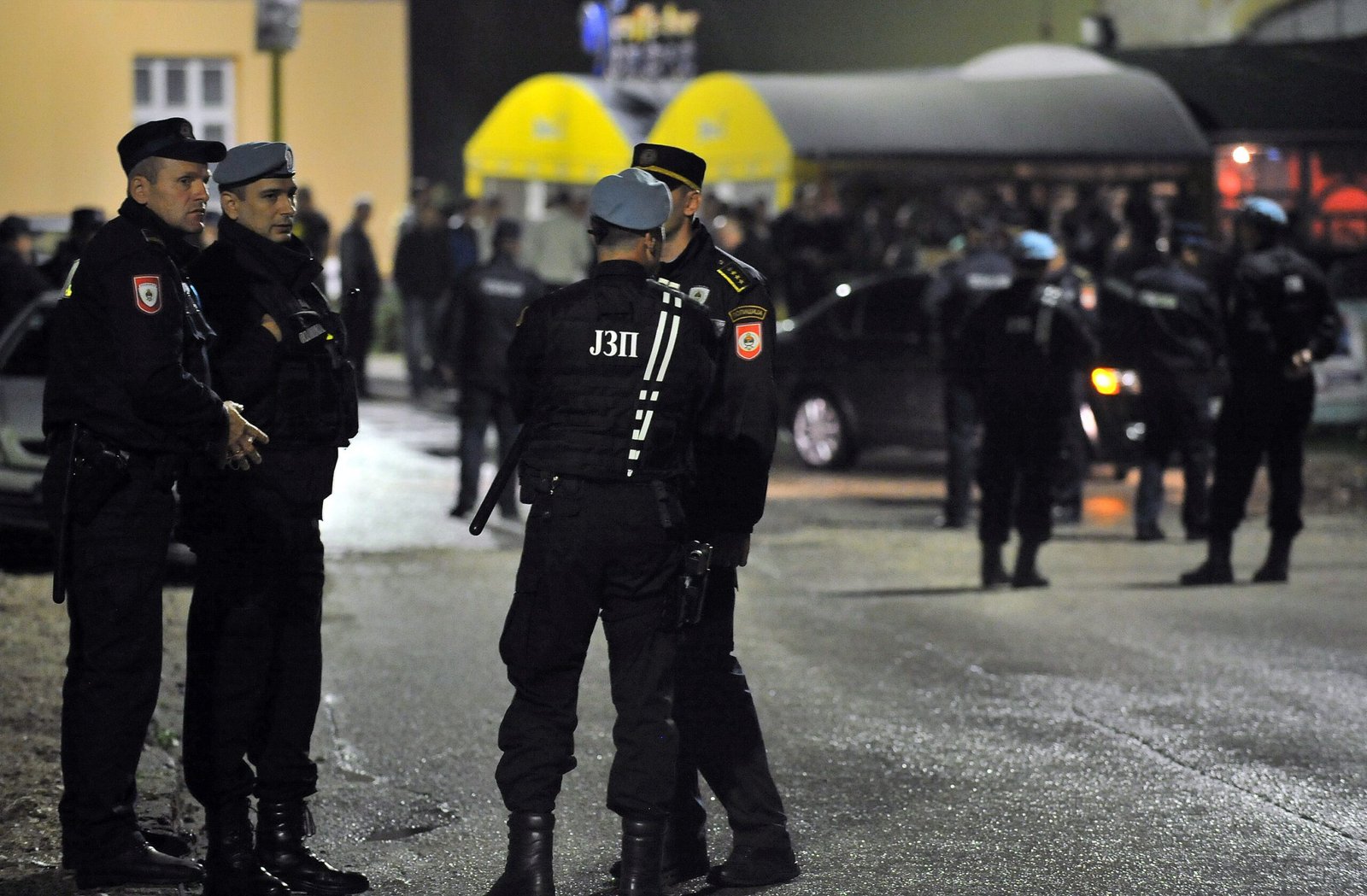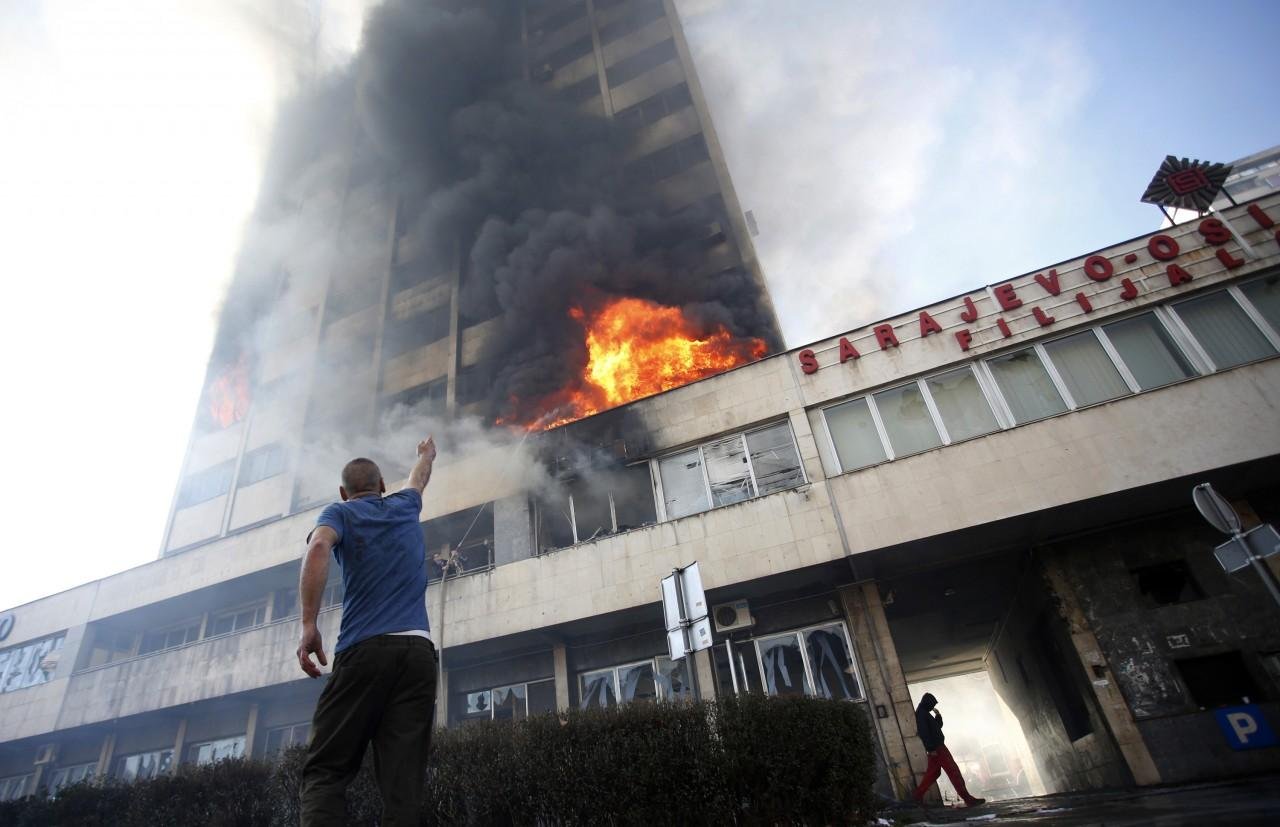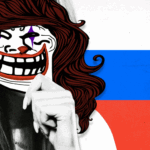Professor Muhamed Budimlic of the University of Sarajevo speaks about crime in Bosnia & Herzegovina, Bosnian youth, the European Union and more.
Recently, I had the pleasure to speak with Professor Muhamed Budimlic, a dedicated professor in the faculty of Faculty of Criminal Justice, Criminology and Security Studies at the University of Sarajevo and former Minister of Internal Affairs of Canton Sarajevo in Bosnia and Herzegovina (BiH). We spoke on the current state of BiH, criminal activity, youth, Europe and the future – among other things.
Zorana Vuk: First of all, thank you so much for this opportunity to chat. What is your view of the current state of (BiH), in terms of criminal activity, especially in the political sphere?
Professor Muhamed Budimlic: If you carefully analyze the situation in the area of countering crime, it is easy to notice that there are serious shortcomings in all segments of the state apparatus in charge of the rule of law. First of all, I think that the work of parliaments in this field is insufficient, which leads to problems in all other judicial and executive segments. Laws and by-laws dealing with the fight against unlawful behaviors have a number of anachronistic or even experimental instruments and models. These result in a lack of effective distribution of rights and responsibilities between the legislative, executive and judicial authorities.
In terms of the most obvious consequences, I see on one hand a lack of enforceable civil oversight and control. On the other hand, there are a whole range of abuses of the inspection, police and judicial system for achieving the political or personal benefits of a minority that maintains control over these institutions. This leads to the decay of the protection of common values, and law enforcement agencies being used for the protection of interests of political elites.

Therefore, I think that the expensive and dispersed police and judicial apparatus is still too far from detecting, prosecuting and adjudicating the most serious forms of criminal behavior in Bosnia and Herzegovina. It can be noticed that there are serious indications that many heads of those institutions provide protection to perpetrators of these most serious crimes.
ZV: Are there any other specific sectors where criminal activity is increasing/decreasing substantially?
MB: Of course, legal and institutional problems are manifested negatively in everyday life through numerous criminal activities. In layman’s point of view at this area, the country’s key problem is property crime, such as theft and robbery. According to state reports these are the cases where most police and judicial officers are engaged, and the category of these offenders is the most numerous according to the indicators of execution of sentences. Nevertheless, this type of crime does not represent even 10% of the damage done in our country through criminal acts. Numerous perpetrators of more serious crimes are not only not convicted but not even detected and reported.
I will distinguish only some areas, such as abuse of official duty or in the duty of the economy, in which there are likely to be corruptive abuses with multi-million dollar damages for which there is very little certainty of fair processing. In only a few studies, it has been found that in medium-sized public procurement, multi-million unlawful profits are generated, which means that annual damages for the entire country could be measured in billions of convertible marks. There are also numerous indicators that in the area of ecological crime there are huge and irreparable damages of illegal exploitation of forest, stone or water resources. In addition to the material unlawful effects, the negative consequences are reflected in the whole ecological system of our country.
Unfortunately, competent state institutions do not pay much attention to these common values, although, in this area the damage can easily be estimated and counted in billions annually. I would also mention public transport, especially road transport, in which almost yearly there are record highs in mortality or serious injuries or disabilities due to the illegal behavior of other road users.
Unfortunately, this is not enough to take serious steps in this area, both on a legislative and institutional level, which would improve preventive activities and increase the safety of all road users. I will state one example, that even for the most severe forms of traffic-related crimes which result in fatalities, the only possible safety measure is the seizure of perpetrator’s license by a maximum of only five years. Further comment on this, I think, is unnecessary.
ZV: Many of our readers may not know about the state of the country since after the war, one big aspect of which is the flight of youth to other countries. I know that you’re very active with youth and encourage them to think critically – why do you think so many of them leave and is there any chance to get them back?
MB: There are numerous NGOs or agencies reporting and dealing with the transfer of young and skilled labor from our country. I’m afraid that for most of these young and capable people it’s a one-way ticket. The reasons are probably numerous, but the one that dominates is that the key qualifications for employment are not expertise and ability, but political or family affiliation with political elites that are in control of both the public and the private sector. It should not be forgotten that the private sector is to a considerable extent connected with the public sector because it engages in public affairs that is financed from the state budget.

It is important not to give up efforts on returning our young people to BiH. However, I think in the foreground should be that all young and creative young people who are still here don’t lose hope that it can be better in BiH. They can and should be the key bearers of creating a more just and better social and state system. Observing history, the young people from these areas have repeatedly proven that, in the last hundred years.
ZV: The ethnic tensions within the country and in the former Yugoslavia region keep being emphasized by the political elite. The rhetoric is often fused with concepts of rights, responsibility and heritage as opposed to “the other” who should “be respected” and so on – identity politics in its purest form. What’s your view on all of this?
MB: Maintaining ethnic tensions is a key platform for almost all political subjects on the territory of the former Yugoslavia, especially those who, in political terms, mean something, and who without major problems, exercises power during all these years in all the countries that have emerged from the collapse of the common state. “The Balkan model of democracy” is nothing more than an illusion of importance, which lasts for the election day, in the part of the population that absorbs fears of different as hostile.
These people unfortunately do not have enough knowledge to recognize the abuse and manipulation of key political protagonists that provide ownership or control of resources that were once “social property” and which have enormous material potential for our conditions. I am sure that this would not be possible without support, which is reflected not only in action but also in inaction, by individuals who have political power within international political circles.
Unfortunately, identity politics has taken on a monstrous form in which the ruling political elite are ready to push millions into a mutual slaughterhouse if their overwhelming material interests are questioned. I would like to emphasize that under political elites I don’t mean just the highest party leaders, but also the owners of private companies that are newly founded or that were created by the privatization of economic entities from the former state.
Just from the example of Bosnia and Herzegovina we can see how thirteen state entities function (ten cantons, two entities and one district) through which public resources flow and the political elites that control them show readiness for total destruction if they feel their positions are threatened. This, in my opinion, explains the bestiality of the political dialogue of the leaders of the highest state functions that promote hatred, conflicts, the impossibility of coexistence, national supremacy, vengeance that often has a nazistic and fascistic background.
At the same time, the political illiteracy and immaturity of the people contributes to the inability to create a more serious and accountable civic and socially oriented political alternative. I am convinced there are many of them, and the percentages of voter turnout prove this. However, the reluctance towards individuals who openly express elitism and arrogance, with the lack of cooperation in drafting a concrete, measurable and enforceable plan aimed at the general well-being, results in negligible political results of these civil or left-oriented political subjects.
Let me, in this context, emphasize that one of the key potentials to ensure the vision and the prospect of a better future here is the category of population that would act in a way that completely or dominantly suppresses national affiliation as relevant in the exercise of any social and state position. This is not the only factor which, with the emphasis and genuine acceptance of the principles of responsible and just society management, could lead to a higher level of both political and universal social stabilization.
ZV: As a former Minister of Internal Affairs, do you see any positive trends in BiH in terms of justice, order and security for the past few years and during your management? Have any big changes occurred?
MB: According to the information available to me and the analysis that I have conducted independently or with my colleagues, I do not see significant positive trends in the improvement of the rule of law in Bosnia and Herzegovina. On the contrary, numerous indicators are indicative that unsolved problems are only accumulating and doing more damage to individual rights and interests, and especially to the common legal protected values. This is a consequence of the adoption of experimental legal and institutional solutions on the basis of which a reorganization plan of the police and judicial institutions was drafted. This is despite there being many indicators that law enforcement institutions are equally inefficient and ineffective.
In the answers to the previous questions, I already referred to the issue of civilian oversight and control of politicization and the inappropriate influence on the work of these institutions, which I believe are fundamental issues for the establishment of adequate and enforceable mechanisms of rights and responsibilities of those institutions that form the main pillar of the Rule of Law. This does not mean that there are no people in the system who have knowledge and integrity, I consider that there are many of them, but they are far from having any significant influence.
In the end, I emphasize the regret that, generally or significantly, they did not accept the solutions and recommendations received and published in the study, which was conducted with the support of USAID in Bosnia and Herzegovina entitled “Integrity of the judicial sector and analysis of the risk of corruption or unethical behavior in the judiciary in Bosnia and Herzegovina”. When I was the Minister of the Interior in the Government of Canton Sarajevo we have pointed out numerous legal and institutional problems and proposed specific solutions that this study has fully confirmed a few years later.
Nevertheless, I must mention that there are indications of a long-term and high-quality approach in treating children and juveniles in conflict with the law with new legal and subordinate, but also institutional, solutions. The extension of the range of social reactions to offenses with the innovation of instruments for their implementation is the result of the work of domestic scientists in the fields of psychology, pedagogy, social work and criminology.I am confident that it will yield positive results both in the repressive and preventive segments in countering offenses of the youngest population.
ZV: There seems to be a constant debate on the EU and whether BiH should be a part of it or not. Also, some groups even strongly debate whether BiH is a part of Europe or not. It seems to be very much a part of Europe, but in your view – why do you think these discussions happen and what’s your view on the topics of EU and Europe?
MB: EU integration is essential for Bosnia and Herzegovina to standardize the legal system that should guarantee the minimum protection of rights of both natural and legal persons. I believe that in BiH there should not be any discussion about accepting forms of regulations and organizational forms of institutions to which many countries have stabilized their socio-economic situation, regardless of whether we will officially become a member of this union. In my opinion it is more important for our citizens to behave towards common values in the way that the average citizen of the EU countries behaves towards these values in their country, in particular, the citizens of the Scandinavian countries. I believe this is the basic task of integrative and reform processes in Bosnia and Herzegovina.

Let us assume there are individuals and groups in Bosnia and Herzegovina who really work on EU integration. In order to confirm this, it does not matter if it is the content of daily vocabulary of function holders in the legislative, executive and judicial authorities. It is necessary to see significant concrete and measurable indicators in everyday life. Unfortunately, what we see is almost completely the opposite. Therefore, I think it is necessary for the citizens of this country to choose and select as many people as possible who will treat entrusted functions by completely neglecting personal gain and making decisions primarily in the common and long-term interest. There are too few such people in the state apparatus today. Even if there are encouraged, they often become objects of media and police-judicial persecution, inspired by the political elites that use these institutional resources.
ZV: Lastly, if you look ahead a few decades, what is your view of how Bosnia has changed? In terms of your fields of study, the youth, EU and other aspects you may find interesting?
MB: Young people are the key to solving the problem. A lot of energy should be focused on keeping children who have vision, knowledge and energy, or those who return to Bosnia and Herzegovina after school abroad. Youth accepts more easily civilisational values based, amongst other things, on altruism, and if there are no new conflicts, their engagement in the future will bring good to this country. National and religious barriers are fictitious and we need to help to protect young people from these influences that are the dominant content of the political elites that rule here in the post-war period. Unless there is a conflict, this is an unstoppable process, and the support of friendly countries can lead to an acceleration of this process.
The University of Sarajevo, as well as the universities in Banja Luka, Mostar, Tuzla and other major cities have a great responsibility. First of all, I am referring to public universities that have been systematically collapsing through regulations and financing decisions for years.
I do not think that all private universities are a danger. Unfortunately, it is noteworthy that some have exclusively business goals that are perceived as a distribution of papers on which a diploma is written, for a corresponding fee. We must help young people to acquire top-level knowledge and contribute to a better life in Bosnia and Herzegovina through their professional and scientific engagement, but also to encourage them to more concrete and better-quality moves in the context of their socio-political engagement.
If we do not change something ourselves, no one will do it for us. That’s precisely what Lord Owen told us during the war, to count on Europe. We do not have to wait for Europe for the simple reason that we are an integral part of it, and this has been proven countless times to date by all peoples from the territory of the former Yugoslavia.
ZV: Kindest thank you for your time and for sharing your views with us, professor Budimlic! I wish you continued success in your academic work.





Article Discussion